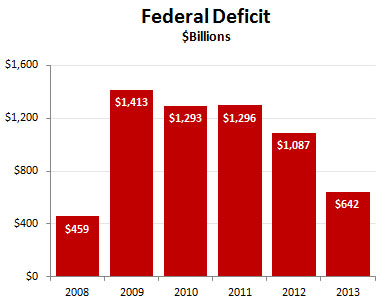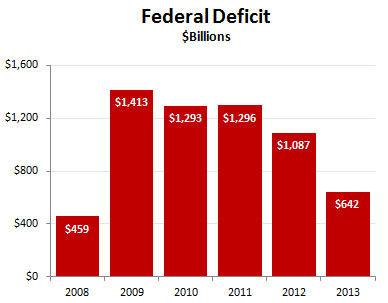
 Ed Kilgore comments on the imminent passage of the recently agreed trillion-dollar spending bill:
Ed Kilgore comments on the imminent passage of the recently agreed trillion-dollar spending bill:
It seems leaders of both parties in Congress have decided to low-key the whole thing. Republicans are supposed to like the bill because it reduces domestic spending below the levels that prevailed when George W. Bush left office, and contains a lot of conservative policy riders. Democrats are relieved it restores funding from sequestered accounts, and that the riders mostly aimed at the capillaries of major progressive priorities. And everyone can shrug and say the bill just implements December’s budget “deal,” which Congress already approved.
Still, the deadly duo of Heritage Action and Club For Growth are opposing the omnibus bill as a “scored” vote, which means the ratings of Members for voting “wrong” will be affected. And you’d better believe conservative primary challengers around the country will be uniformly opposing the bill and trying to make it an issue. So even if omnibus appropriations slide through Congress without a lot of noise, markers are being laid down that could matter down the road.
Maybe I’m naive, but why aren’t both parties also in favor of adding a debt ceiling increase to this bill? Democrats should favor it because it avoids another dumb fight down the road. Republicans should favor it because they’re already taking a scoring hit over this vote anyway, so why not toss in the debt increase and avoid a second scoring hit later in the year?
I know, I know, Republicans are still vainly hoping to use the debt ceiling to screw some concessions out of Obama. And perhaps they don’t want to set (or revive, actually) the precedent that spending bills which create deficits should approve the payment of those deficits at the same time. Still. It sure seems like everyone would be better off getting this whole thing off the table at once. Don’t Republicans want to spend the rest of the year complaining about Obamacare, not losing yet another debt ceiling fight?








